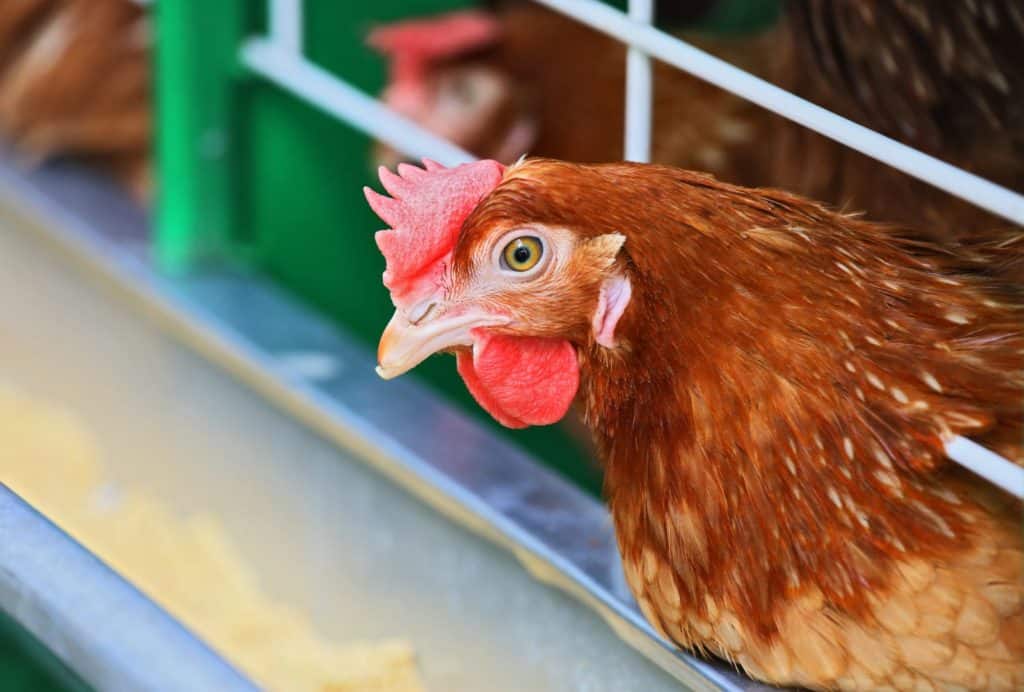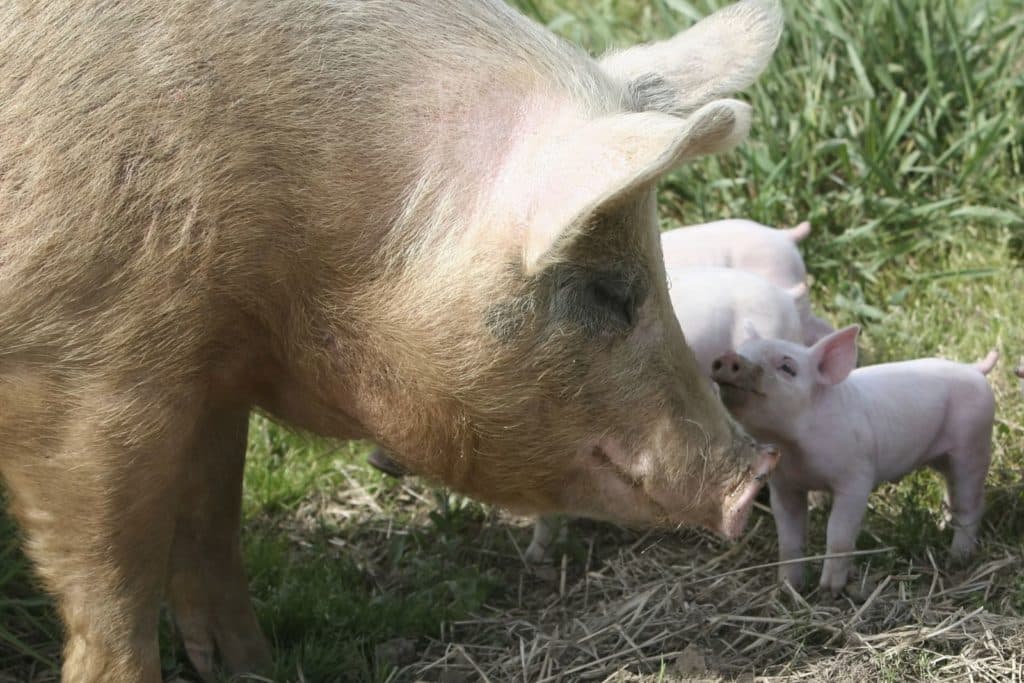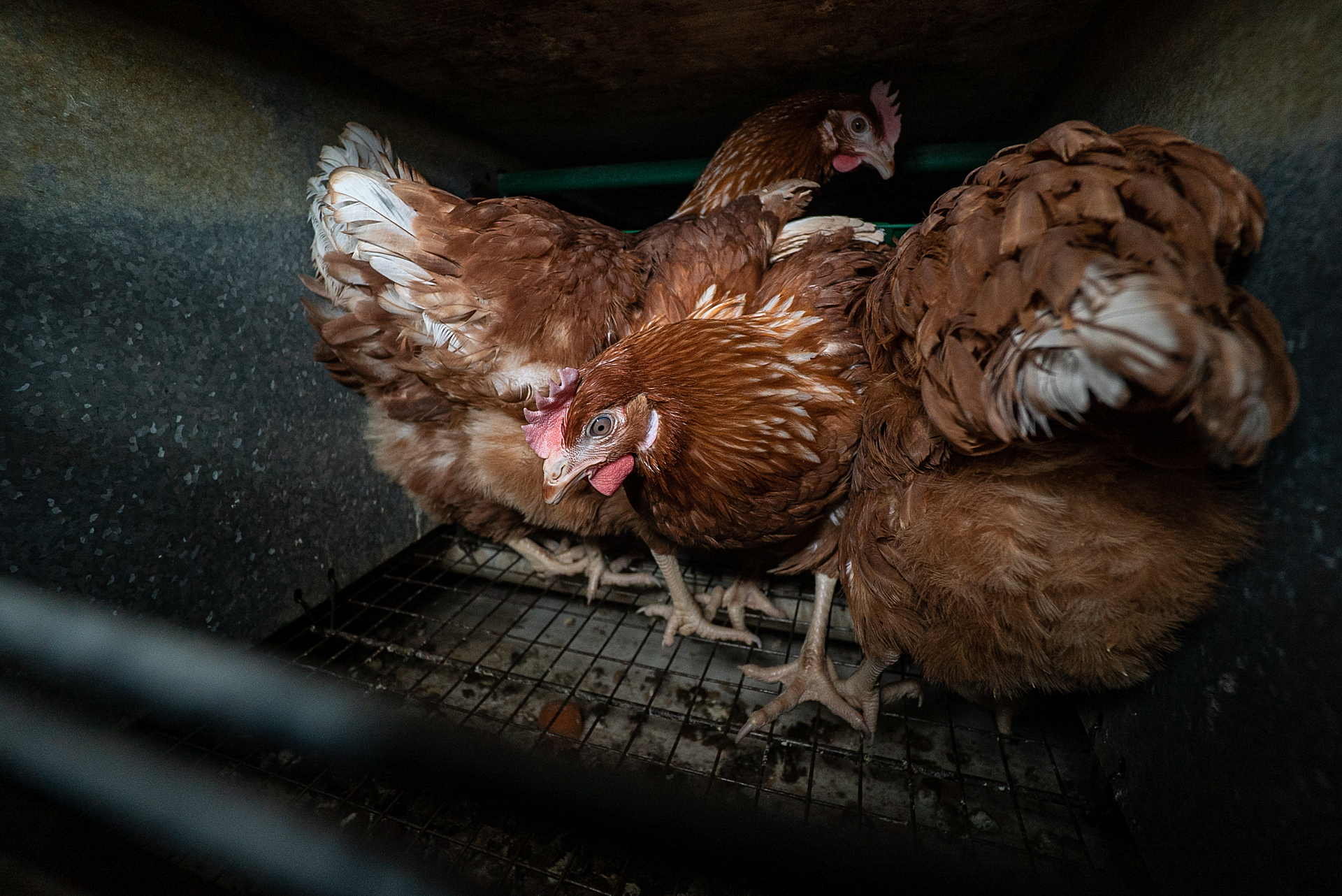Celebrating the Night Gardeners of our Eco-System! Australia is home to over 90 species of bats, each playing a critical role in our ecosystems. From pollinating native flora to foraging on insects, these remarkable creatures help keep our landscapes healthy, diverse and in balance. On International Bat Day, Humane World...
The meat industry has issued an important note to self. Meat and Livestock Australia has warned its industry they face a $3.2 billion loss due to concerns over animal welfare.
MLA’s Community Engagement Manager Ms Jacqueline Baptista told an industry gathering this week: “We’ve spent decades thinking this threat would go away, or it would change, or it was just some sort of activist left-wing group that would magically disappear and we’ve dealt with it a couple of different ways. One of them was ignore them and hope that they go away, another tactic was get aggressive or defensive — neither of those things have really worked particularly well for us as an industry”. Ms Baptista made the statement as she referred to an independent economic study looking at changing consumer attitudes.
We hope that our new Federal Agriculture Minister, Senator Bridget McKenzie, is listening to this message from the industry.
In November 2013 the federal government all but abandoned animal welfare policy, doing a great disservice not only to the animals, but also to industry. Funding for the Australian Animal Welfare Strategy (AAWS) ceased, the Australian Animal Welfare Advisory Committee (AAWAC) was disbanded, and so too the Animal Welfare Committee (AWC). The section of the Department of Agriculture working on animal welfare was dismantled. Predictably, in the culture this encouraged, catastrophic animal welfare disasters followed and have been exposed on our television screens.
This has been a spectacular backfire for the ‘ignore them and hope they go away strategy’ and the policy ball drop has only deepened the community’s mistrust and resentment over their concerns for animal welfare being belittled and disregarded. The anger this fuels is today spilling out online and on the streets, making the issue increasingly divisive.

Neither did it help Australia’s international reputation in animal welfare. When the Animal Protection Index was released early in 2014 Australia was graded a C, disappointingly lower than peers such as New Zealand and the United Kingdom. The lack of national animal welfare frameworks was a key reason.
The Morrison Government has a chance to re-set. At the Agriculture Ministers’ Forum in February 2019, ministers acknowledged problems with the current national approach to regulation of animal welfare and agreed to a collaborative process to find ways to improve Australia’s regulatory system for animal welfare. As a result the Federal Department of Agriculture and Water Resources (DAWR) has embarked on a consultation process to hear perspectives and insights about the regulatory system for farm animal welfare. This will inform the development of reform options that will be shared for further consultation before recommendations are made to agriculture ministers at the end of the year.
Humane Society International would like to see the Morrison Government get on the front foot with animal welfare. There is much ground to catch up. Industry horizon scanners will know they need to be embracing the highest levels of animal welfare and ecological sustainability if they are to compete with plant based proteins and lab grown meats, and they need government to be providing the policy settings to support this future. Whereas current policies are looking decidedly backward.
Close confinement is still legal for millions of poultry and sows across Australia, so too are many painful mutilations such as mulesing of lambs, and they can even be lawfully inflicted without anaesthetic. These are examples from a long list of enduring poor practices in Australia which need an urgent phase out. While some in industry will resist it, surely the more progressive know they would benefit from clear timetables for standards upgrades and investment certainty.
Sadly, the current process for setting Animal Welfare Standards and Guidelines in Australia is frustratingly slow and shambolic which leads to chronic uncertainty. With the federal government absconding itself from its rightful leadership and coordination role in this process, it has been left to the states to drive the standard setting negotiations themselves. This doesn’t work. No one state or territory feels it is their role to coordinate a federal process. It is also a battle where the loudest and most powerful stakeholder wins and this stakeholder is never the animals. The poultry guidelines have taken more than two years to negotiate and are in danger of still allowing cruel battery cages. And even once heavily compromised standards and guidelines are agreed it takes further years for them to be adopted into the legal frameworks of their respective jurisdictions. What we’re left with is piecemeal and forever lagging behind community expectations.
Animal welfare policy needs a clearly timetabled process of advancement, led, coordinated and funded by the federal government, with objective and evidence based decision making, informed by independent science and directed by a strong moral compass. Of course, all stakeholders need to be fairly consulted in reaching that decision making. And of course the best way to ensure all of the above would be to make it statutory through national animal welfare legislation and to take the whole process into an independent statutory body such as an Independent Animal Welfare Office. Reform at the state level to ensure the adoption of national standards and guidelines happens promptly and uniformly is also needed.
The Government has been told that the public wants reform. In a study for DAWR, Australia’s Shifting on Farm Animal Welfare, Future Eye found that 95% of people view farm animal welfare to be a concern and 91% want at least some reform to address this. Their research ‘indicates a fundamental community belief that animals are entitled to the protection of relevant rights and freedoms, closely aligning with activist sentiment. The public has a clear expectation for effective regulation to uphold these freedoms and expect highly transparent practices, regulation and enforcement1.

Reform of national animal welfare governance has been called for from stakeholders across the board, including the farmers themselves. A national forum in 2015, hosted by the Australian Veterinary Association, National Farmers’ Federation and the RSPCA resulted in agreement from many participants that national coordination and consistency is needed: “National leadership and coordination is required to promote strategic thinking, partnerships and shared investment rather than a patchwork of differing standards”. In 2016 World Animal Protection made the case for an Independent Office of Animal Welfare in their report Advance Australian Animal Welfare: The urgent need to establish national frameworks2. That same year the Productivity Commission chimed in recommending in their inquiry into Agriculture Regulation: The process for setting standards for farm animal welfare would be improved by applying scientific principles and evidence through the creation of a national, independent body responsible for building the evidence base on community expectations, as well as for developing national farm animal welfare standards3. Mick Keogh, when Executive Director of the Australian Farm Institute, said “The current piecemeal, state and industry based approach lacks cohesion, consistency, and objective scientific underpinning, and is in need of significant reform if it is to serve both the industry and the community.4
And support is there in the Parliament. Labor committed to an Independent Office of Animal Welfare in their 2016 and 2019 federal election policies, and in 2015 the Greens introduced a bill to establish one.
With so many stakeholders calling for improved animal welfare governance, clearly the ‘ignore them and hope they go away’ strategy isn’t going to cut it. Humane Society International hopes we can look forward to working with the new Minister on some long overdue reform.
1 – Commodity or Sentient Being? Australia’s shifting mindset on farm animal welfare, Future Eye 2018
4 – https://www.farmonline.com.au/story/3378967/farmers-need-federal-welfare-laws-afi/
Nicola Beynon is our Head of Campaigns in Australia and has twenty five years of experience campaigning in the Australian and international animal protection movements. She first joined HSI in 1998 and has spent a total of 15 years with the organisation. She has also spent time working in the NSW parliament as a policy advisor to an upper house MP and spent three years with World Animal Protection. Nicola has championed wildlife protection at many multi-lateral environment meetings including the UN Convention for Trade in Endangered Species CITES, Convention for the Conservation of Biological Diversity (CBD), Convention for Migratory Species and the International Whaling Commission (IWC); often as an adviser on Australian government delegations. Career highlights have been negotiating Australia’s national environment laws in 1999, securing protection for a ‘million acres’ of threatened wildlife habitat, taking the Japanese whalers to court and winning, working with the Australian Government to instigate international agreements for albatross and sharks, and protecting great white sharks from the global trade in their jaws and fins.
Header image: iStock.com/jodie777 | Chicken: iStock.com/Krugloff | Pigs: iStock.com/Anthony Gaudio


